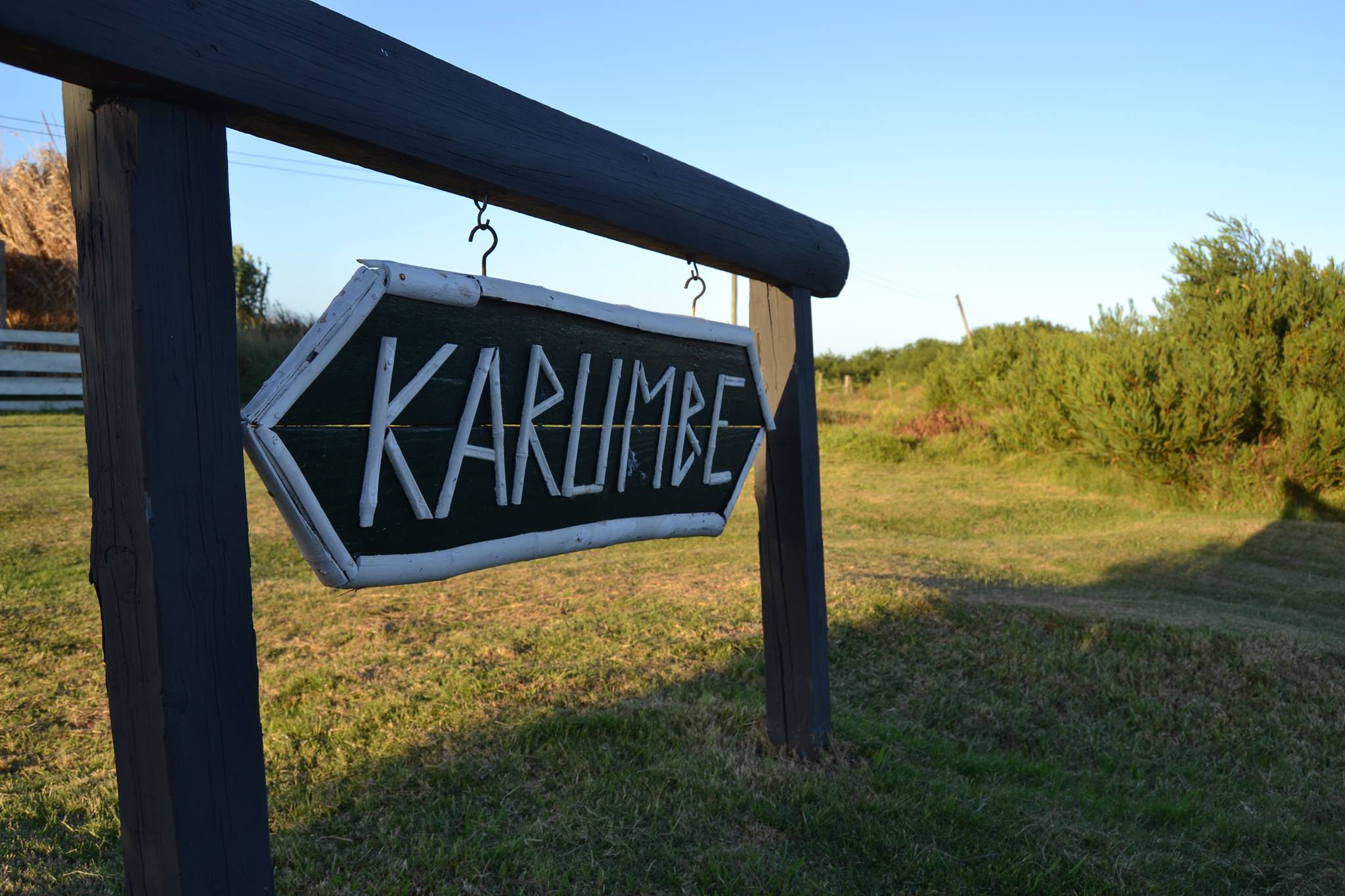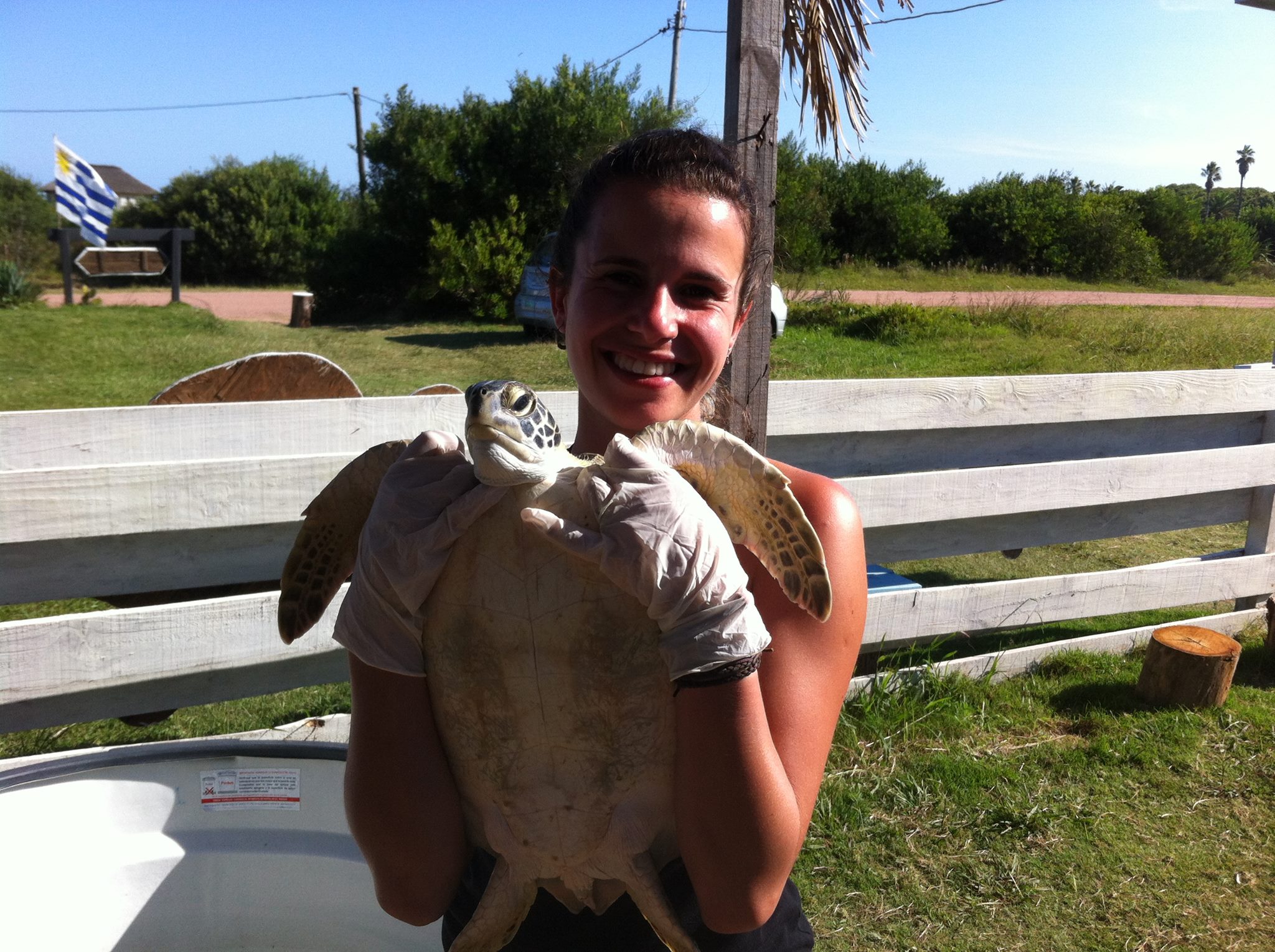“I learned that it isn’t necessary to be a biologist or a veterinarian to take care of animals; you only need to be a human with dignity, who wants to take care of the planet and those who live in it with us.”
Imagine yourself swimming deep into the ocean to find the most extraordinary animals that most of us don’t often see up-close but discover from afar. Now, think about how this serene realm of existence on planet earth is being destroyed and taken advantage of by humans’ everyday.
The world’s oceans have between 700,00 and one million species. However, research from the Sea Turtle Conservancy revealed that almost all species of sea turtles worldwide are in decline due to netting entanglements, climate change, and plastic thrown into the sea.
In honour of World Turtle Day on 23 May, the IPF spoke to 23-year-old marine biologist Adriana Gonçalves about her experience volunteering for Karumbé, a small NGO in Uruguay, a country in the southeast coast of South America. Karumbé translates to “turtle” in Guarani, a local indigenous language, and is an organisaton dedicated to turtle conservation in the protected area of Cerro Verde and Islas de la Coronilla.
“I learned that it is not necessary to be a biologist or a veterinarian to take care of animals; you only need to be a human with dignity, who wants to take care of the planet and those who live in it with us,” Adriana told the IPF. “Unfortunately, our responsibilities as a human beings are difficult to achieve, and animals that live out there are paying the price.”
Karumbé’s work with turtle conservation
Karumbé was founded in 1999 by a group of biologists who decided to use their skills to help, protect, and study turtle species within the area. Today, the NGO trains volunteers to investigate, conserve and help raise awareness on five of the seven species of turtles that exist in Uruguay: the Green Turtle, Loggerhead Turtle, Leatherback Turtle, Olive Ridley Turtle and Hawsbill Turtle. In Cerro Verde and Islas de la Coronilla, Green Turtles – the largest species in the family of hard-shelled sea turtles – are the ones that appear more regularly on the shores.
During Adriana’s month-long volunteer programme, she explained how each volunteer was responsible for a different area of turtle conservation. Some of the tasks included assisting with autopsies, making censuses, rehabilitation of turtles recovering in the centre, catching turtles to study their physical condition for a few days, and checking for any evidence of trash in the turtles.
Adriana said that one of Karambé’s main aims is to investigate the impact ocean trash has on the turtles and she explained why:
“While I was there, most dead turtles were dead because they swallowed plastic.”
Studies conducted by Ocean Conservancy have found trash on beaches and in the ocean. Once the trash flows from the beach into the ocean, the sea turtles end up mistaking it for a jellyfish and, as a result, they clog up their intestines. Some sea turtles also become entangled in fishing gear and other debris.
Society’s role in turtle conservation
Adriana highlighted another problem faced by sea turtles: young hatchlings having low survival rates. She said that out of roughly 100 eggs, only a few get to adulthood. The turtle eggs are laid in nests on the beach – an area that is always occupied by people and other animals. The faster the sea turtles reach the water, the higher the chances of their survival. Unfortunately, birds, dogs or people find them before they have a chance to swim away.
However, thanks to the volunteers at Karumbé, some of the sea turtles are being taken care of everyday. By engaging with tourists and local schools, Karumbé volunteers provide people in the area with information about the turtles, other animals living in the area and ocean pollution. In the summer, volunteers conduct presentations at schools to raise awareness among young people, who Adriana described as the “leaders of tomorrow”.
Adriana believes society can play its role in turtle conservation by following the “three R’s rule”: reduce, reuse, recycle. She explained: “Reduce the number of plastic bags you use in the supermarket, reuse the things you throw away, make new things (DIY), and recycle.”
“Most importantly, don’t throw trash on the street. Whether you are on the beach, in the car, or in the middle of a city. Trash on the floor is a big no-no.”
Despite the distance between people and sea animals, our actions impact and determine their lives. According to National Geographic, sea turtles have been on the earth for over a 100 million years. Adriana believes it’s time we learn to educate ourselves about the dangers and risks turtles face, not just because it’s World Turtle Day, but because it’s their home and we have the means to adopt change.
She said: “I think more people should volunteer their time to help the next generation of turtles but also share things and information about turtles on their Facebook and Twitter pages. The more you know, the better.”
“I learned that the world is very small and that a single place, like the organisation where I volunteered, can bring the whole world together; different people, different languages, but with one thing in common: love.”
To find out more about the historical background of sea turtles in Cerro Verde and Islas de la Coronilla, Uruguay, check out MARE Research Centre.



